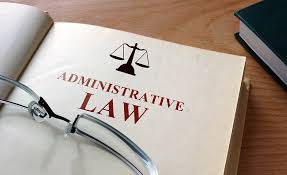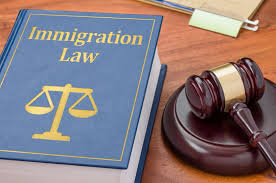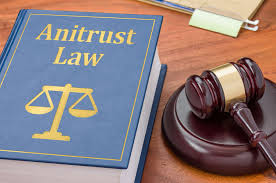
- Real Estate Law: A Comprehensive Guide for Homebuyers, Sellers, and Investors
- Types of Real Estate Law
- Buying and Selling Property
- Landlord and Tenant Law
- Real Estate Litigation
- Table of Contents: Relevant Codes and Statutes
- Conclusion
-
FAQ about Real Estate Law
- What is real estate law?
- What types of real estate transactions require legal assistance?
- What are the different types of real estate professionals?
- What are the common legal issues that arise in real estate transactions?
- What are some tips for avoiding legal problems when buying or selling real estate?
- What are the legal requirements for selling a house?
- What are the legal rights of tenants?
- What are the legal responsibilities of landlords?
- What are the legal remedies for breach of a real estate contract?
- Where can I find more information about real estate law?
Real Estate Law: A Comprehensive Guide for Homebuyers, Sellers, and Investors
Hello readers,
Welcome to our in-depth guide to real estate law. Whether you’re a first-time homebuyer, a seasoned investor, or simply curious about the legal aspects of property ownership, this article is designed to provide you with a comprehensive understanding of everything you need to know.
In this guide, we’ll cover a wide range of topics, including:
- The different types of real estate law
- The legal process of buying and selling property
- Landlord and tenant law
- Real estate litigation
- And much more!
So sit back, relax, and let’s get started on our journey through the world of real estate law.
Types of Real Estate Law
Real estate law is a broad term that encompasses a wide range of legal issues related to the buying, selling, and owning of property. Some of the most common types of real estate law include:
- Property law: This area of law governs the ownership, transfer, and use of real property. It includes issues such as deeds, titles, easements, and boundary disputes.
- Contract law: Contract law governs the legal agreements that are made between buyers and sellers of property. This includes issues such as purchase agreements, lease agreements, and closing costs.
- Landlord and tenant law: This area of law governs the relationship between landlords and tenants. It includes issues such as rent payments, evictions, and security deposits.
- Zoning law: Zoning law regulates the use of land within a particular area. It includes issues such as residential, commercial, and industrial zoning.
- Environmental law: Environmental law protects the environment from the harmful effects of human activities. It includes issues such as air pollution, water pollution, and hazardous waste disposal.
Buying and Selling Property
The legal process of buying and selling property can be complex and time-consuming. However, by understanding the steps involved, you can make the process as smooth and stress-free as possible.
The first step in buying a property is to find a qualified real estate agent. A good agent will help you find the right property, negotiate the best price, and guide you through the closing process.
Once you have found a property that you’re interested in, you will need to make an offer. The offer should include the purchase price, the terms of the sale, and any contingencies (such as the sale of your current home).
If the seller accepts your offer, you will enter into a contract to purchase the property. The contract will set forth the terms of the sale, including the price, the closing date, and any contingencies.
Once the contract has been signed, you will need to obtain a mortgage loan if you’re not paying cash for the property. The mortgage loan will be used to finance the purchase of the property.
Once the mortgage loan has been approved, you will need to attend a closing. The closing is the meeting at which the legal transfer of ownership of the property takes place. At the closing, you will sign the deed and the mortgage loan documents and pay the closing costs (such as the title insurance, the lender’s fees, and the attorney’s fees).
Landlord and Tenant Law
Landlord and tenant law governs the relationship between landlords and tenants. The rights and responsibilities of landlords and tenants vary from state to state, but there are some general principles that apply in most jurisdictions.
Landlords have the right to:
- Collect rent
- Evict tenants
- Make repairs
- Set rules and regulations
Tenants have the right to:
- Live in a safe and habitable environment
- Enjoy quiet enjoyment
- Privacy
- Freedom from discrimination
Real Estate Litigation
Real estate litigation is the legal process by which disputes between parties in a real estate transaction are resolved. Common causes of real estate litigation include:
- Breach of contract
- Fraud
- Title disputes
- Easement disputes
- Boundary disputes
Real estate litigation can be complex and time-consuming, but it is often necessary to protect your rights and interests.
Table of Contents: Relevant Codes and Statutes
| Source | Code/Statute | Description |
|---|---|---|
| United States Code | 42 U.S. Code § 3601 | Fair Housing Act |
| California Civil Code | Cal. Civ. Code § 1092 | Statute of Frauds |
| New York Real Property Law | N.Y. R.P.L. § 235-a | Real Property Law |
| Texas Property Code | Tex. Prop. Code § 5.001 | Property Code |
| Florida Statutes | Fla. Stat. § 689.03 | Real Estate Broker Act |
Conclusion
We hope that this article has given you a comprehensive overview of real estate law. If you would like to learn more about a specific topic, please check out our other articles on the following topics:
FAQ about Real Estate Law
What is real estate law?
Real estate law is the area of law that governs the ownership, use, and transfer of real property (land and buildings). It includes laws that regulate the sale, purchase, leasing, and mortgaging of real estate.
What types of real estate transactions require legal assistance?
Many real estate transactions, including the purchase or sale of a home, require legal assistance to ensure that the transaction is completed properly and that the rights of all parties are protected.
What are the different types of real estate professionals?
Real estate professionals include real estate agents, brokers, attorneys, and inspectors. Real estate agents assist buyers and sellers in finding and purchasing or selling properties, while brokers oversee the activities of agents. Real estate attorneys draft and review contracts and represent clients in real estate transactions. Inspectors examine properties to assess their condition.
What are the common legal issues that arise in real estate transactions?
Common legal issues that arise in real estate transactions include disputes over property boundaries, title disputes, and landlord-tenant issues.
What are some tips for avoiding legal problems when buying or selling real estate?
To avoid legal problems when buying or selling real estate, it is important to obtain legal advice before entering into a contract, carefully read and understand all documents before signing them, and use the services of a qualified real estate professional.
What are the legal requirements for selling a house?
The legal requirements for selling a house vary by jurisdiction but typically include obtaining a title search, disclosing any known defects in the property, and transferring the deed to the buyer.
What are the legal rights of tenants?
Tenants have various legal rights, including the right to a habitable dwelling unit, the right to privacy, and the right to quiet enjoyment of their property.
What are the legal responsibilities of landlords?
Landlords have various legal responsibilities, including providing a habitable dwelling unit, maintaining the property, and complying with all applicable building codes and safety regulations.
What are the legal remedies for breach of a real estate contract?
The legal remedies for breach of a real estate contract vary depending on the circumstances and jurisdiction but may include damages, specific performance, or rescission of the contract.
Where can I find more information about real estate law?
There are various resources available to learn more about real estate law, including books, articles, online resources, and government agencies.





